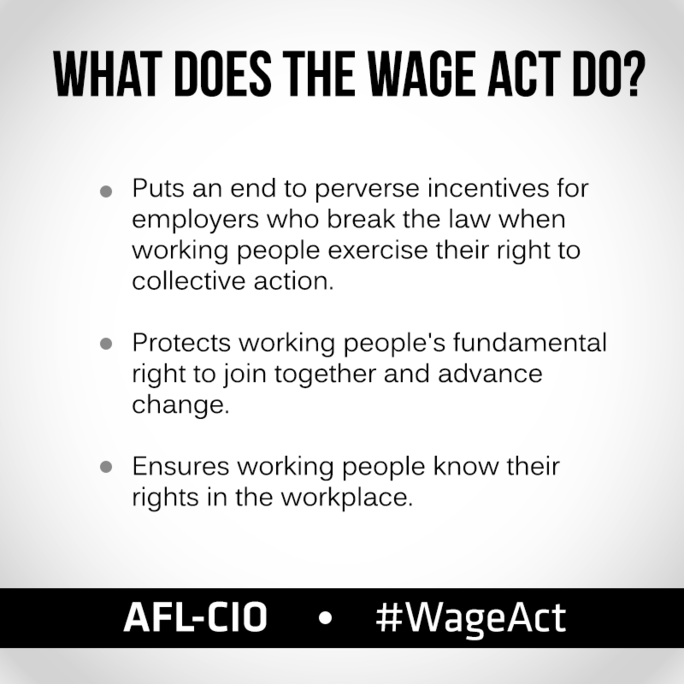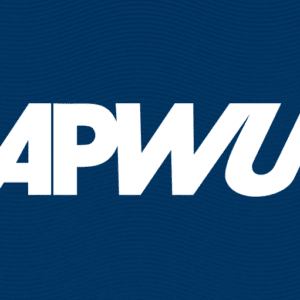February 5, 2016
The WAGE Act
Many Americans are turning their attention to the persistent and growing problem of income inequality. As the rich get richer and leave working families behind with wages that have stagnated for decades, our leaders in Washington should be mindful of the best way to raise wages – collective bargaining. Workers coming together, forming a union, and collectively bargaining is a tried and true recipe for raising wages. This winning recipe and the right to collectively bargain was enshrined in the National Labor Relations Act (NLRA).
Unfortunately, protections afforded to workers under the NLRA don’t always translate into real life. In many cases, the legal deck is stacked against workers. There is little disincentive to stop companies from retaliating against workers who exercise their rights – the penalties simply are too small and too weak. Likewise, the timeframe for resolving unfair labor practices can stretch on for years, long after an affected employee deserved justice.
Workers need help to combat unlawful management practices and ensure more can exercise their collective bargaining rights, where workers can win a decent living wage, benefits, and respect and dignity on the job.
That’s why Senator Patty Murray (D-WA) and Representative Bobby Scott (D-VA), introduced the Workplace Action for a Growing Economy (WAGE) Act last September. The WAGE Act significantly strengthens the NLRA and allows for effective and prompt remedies to employer misconduct. Under the WAGE Act, there would be real penalties and fines to discourage companies from retaliating against workers exercising their collective bargaining rights. As AFL-CIO President Richard Trumka puts it, “The WAGE Act asserts in no uncertain terms that workers’ rights are civil rights.”
Since its introduction, 25 senators and 74 representatives have co-sponsored the WAGE Act. Have yours?

To read more about the WAGE Act, please click here.



